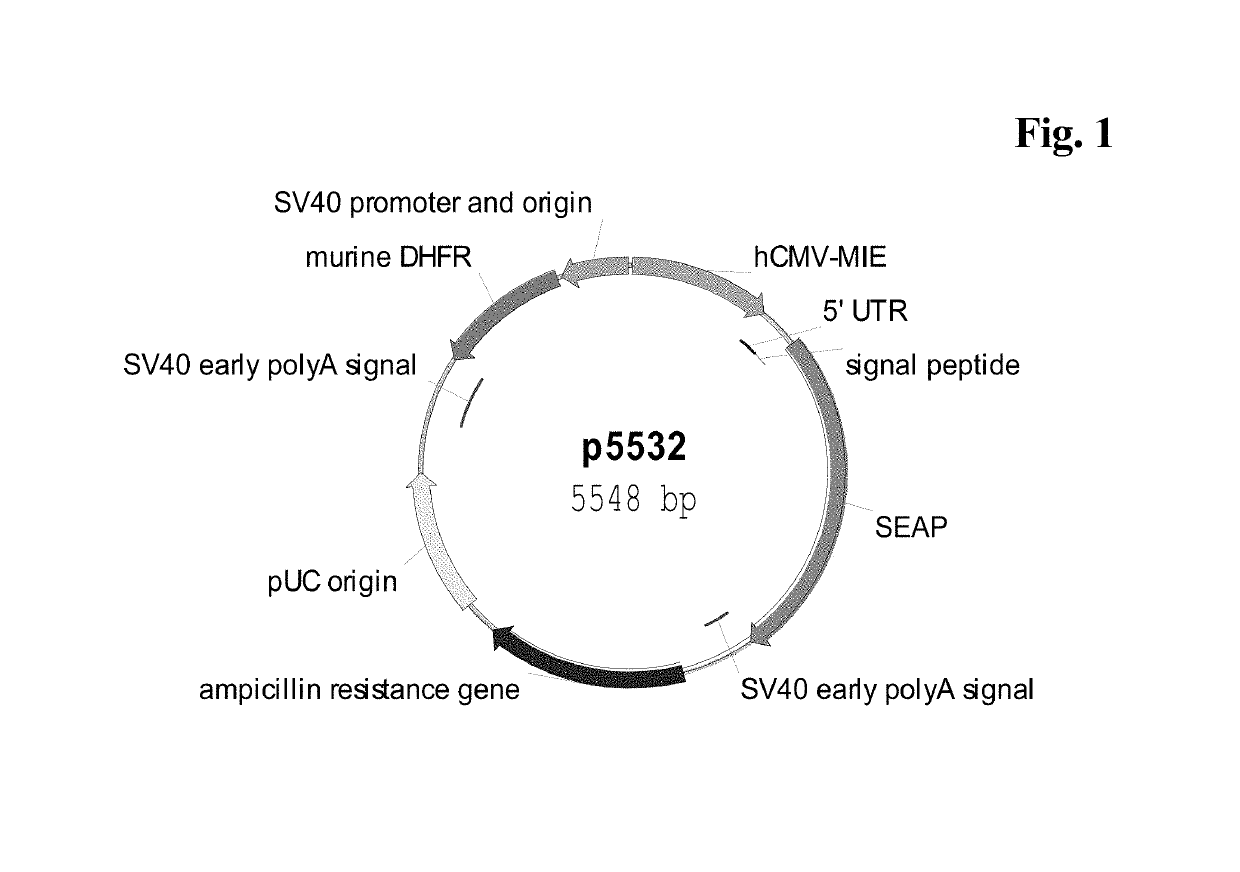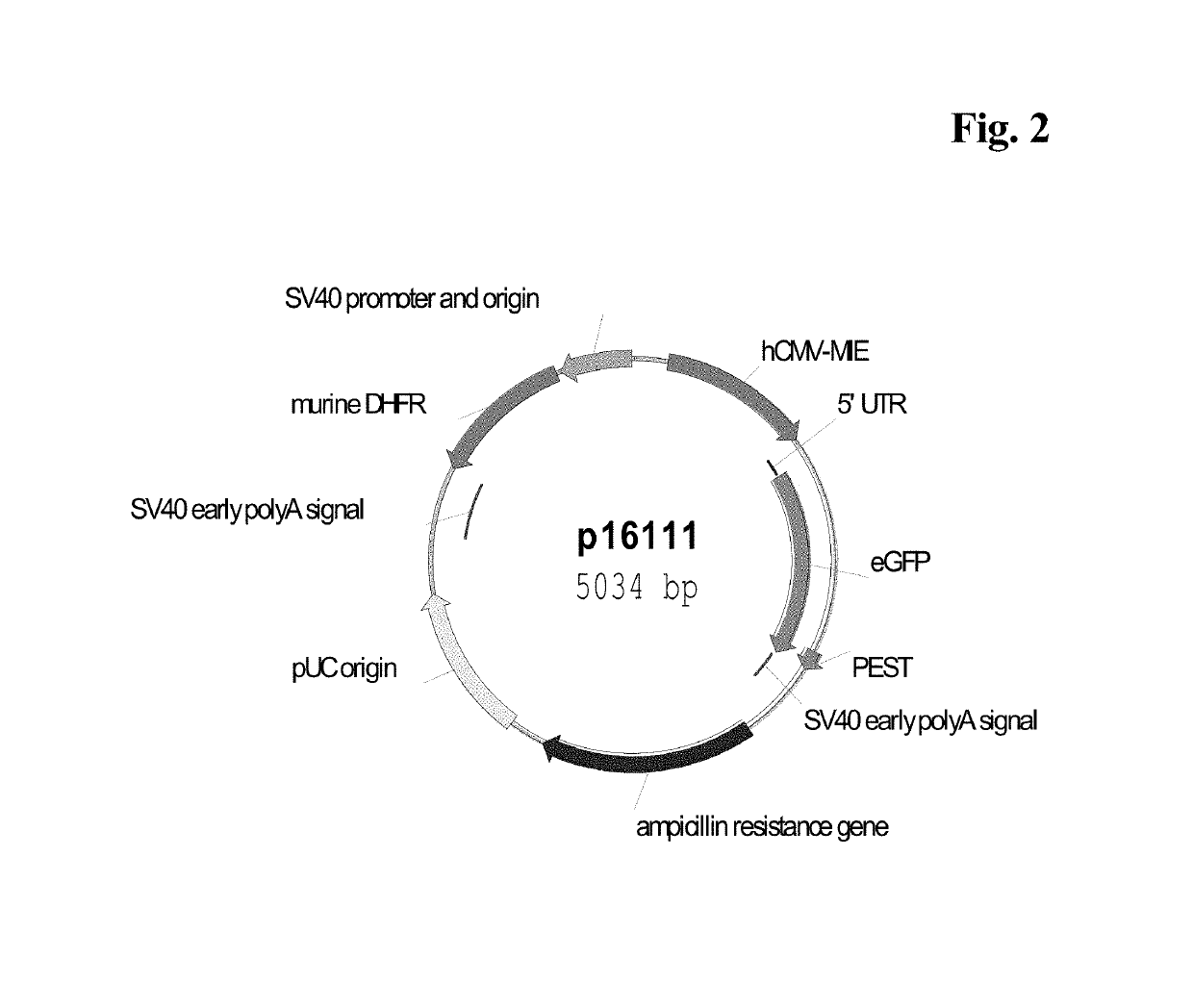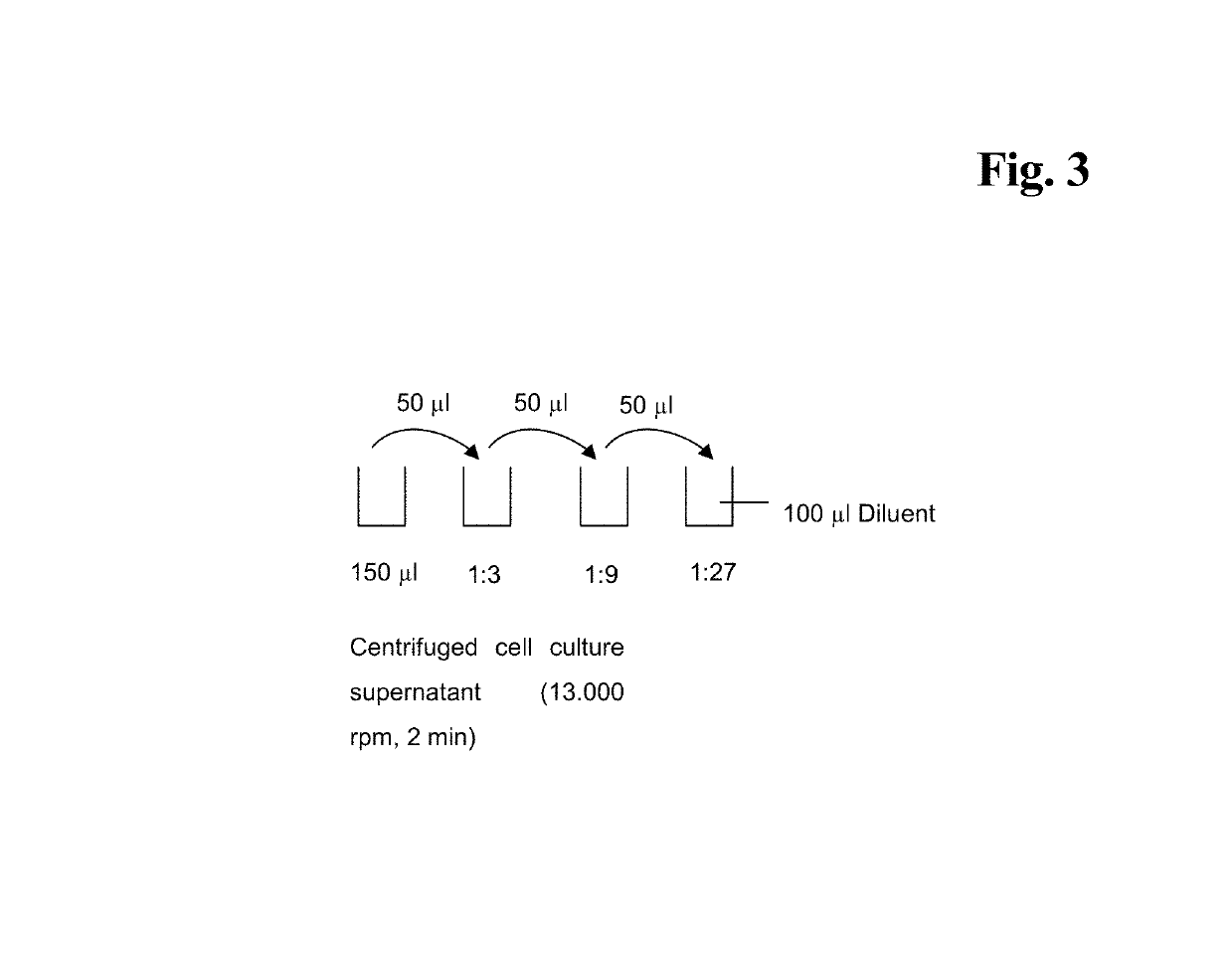CMV promoter and method for production of polypeptides
a promoter and polypeptide technology, applied in the field of protein expression, can solve the problems of long-term productivity loss, achieve the effects of reducing promoter silencing, improving production stability, and increasing the titer of produced polypeptides
- Summary
- Abstract
- Description
- Claims
- Application Information
AI Technical Summary
Benefits of technology
Problems solved by technology
Method used
Image
Examples
example 1
General Techniques
Recombinant DNA Techniques
[0134]Standard methods were used to manipulate DNA as described in Sambrook et al.,
[0135]Molecular Cloning: A Laboratory Manual, Second Edition, Cold Spring Harbor Laboratory Press, Cold Spring Harbor, N.Y., (1989). The molecular biological reagents were used according to the manufacturer's instructions.
[0136]DNA sequencing was performed at SequiServe GmbH (Vaterstetten, Germany).
DNA and Protein Sequence Analysis and Sequence Data Management
[0137]The EMBOSS (European Molecular Biology Open Software Suite) software package and Invitrogen's Vector NTI version 9.1 were used for sequence creation, mapping, analysis, annotation and illustration.
Sample Preparation for Antibody Analysis:
[0138]Cell concentration was calculated and 2 ml per sample were centrifuged (500 g, 5 minutes at 20-30° C.). Supernatant was transferred to new 96 deep well plates and stored at −20° C. until use. Frozen supernatant was thawed overnight ...
example 2
Generation of Recombinant CHO Cell Lines
[0139]CHO-K1 suspension cells were transfected, either transiently or stably with a vector carrying a reporter gene, either Secreted Alkaline Phosphatase (SEAP: FIG. 1; SEQ ID NO: 05) or enhanced Green Fluorescence Protein (eGFP: FIG. 2) or human antibody constructs of class IgG (IgG cytokine (IL2) fusion protein as reported in WO 2014023752; FIG. 9) under control of a human CMV major immediate-early promoter / enhancer fragment, either wild-type (SEQ ID NO:01) or comprising C to G point mutations. The C to G mutations C-508, C-179 and C-41 of CpG dinucleotides within the hCMV-MIE fragment were inserted alone or in various combinations to increase long term stability (Table 1). The C to G mutations are identified by their distance to the transcription start site (TSS). The mutations were inserted with QuikChange Multi-Site-Directed Mutagnesis Kit (Agilent Technologies, Waldbronn, Germany). The vector further comprised a nucleic acid sequence enc...
example 3
Long-term Cultivation and Production
[0144]Various CHO cell pools containing CpG point mutations within the human CMV major immediate-early promoter / enhancer fragment (Table 1) obtained according to Example 2 were investigated for long-term productivity.
[0145]The cells were tested for production stability for 2 to 3 month after transfection in the presence of selection agent MTX. The cells were continuously cultivated in vented 125 ml shake flasks containing 20-40 ml medium with selection agent and diluted twice a week with fresh medium. Seeding density was 2 to 3×105 cells / ml. Prior to passage viable cell density and viability were determined.
[0146]Antibody concentration of the supernatant (antibody titer) was determined by protein A HPLC and ELISA at the end of each passage. From these data, the cell specific productivity (qP) for each passage was calculated using the following formula:
[0147]qP=P2-P1(D2-D1) / 2*Δt
[0148]qP [pg / cell / d]: cell specific productivity,
[0149]P1 [μg...
PUM
| Property | Measurement | Unit |
|---|---|---|
| volume | aaaaa | aaaaa |
| volume | aaaaa | aaaaa |
| volume | aaaaa | aaaaa |
Abstract
Description
Claims
Application Information
 Login to View More
Login to View More - R&D
- Intellectual Property
- Life Sciences
- Materials
- Tech Scout
- Unparalleled Data Quality
- Higher Quality Content
- 60% Fewer Hallucinations
Browse by: Latest US Patents, China's latest patents, Technical Efficacy Thesaurus, Application Domain, Technology Topic, Popular Technical Reports.
© 2025 PatSnap. All rights reserved.Legal|Privacy policy|Modern Slavery Act Transparency Statement|Sitemap|About US| Contact US: help@patsnap.com



